Seminário organizado em parceira com a Universidade da Madeira.
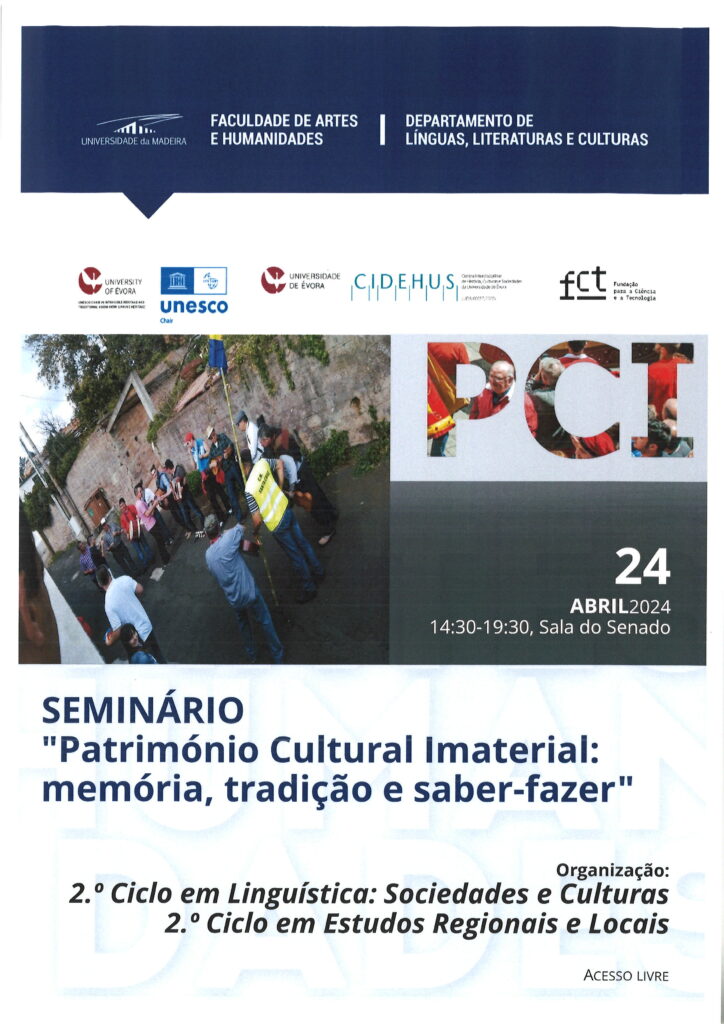
PROGRAMA
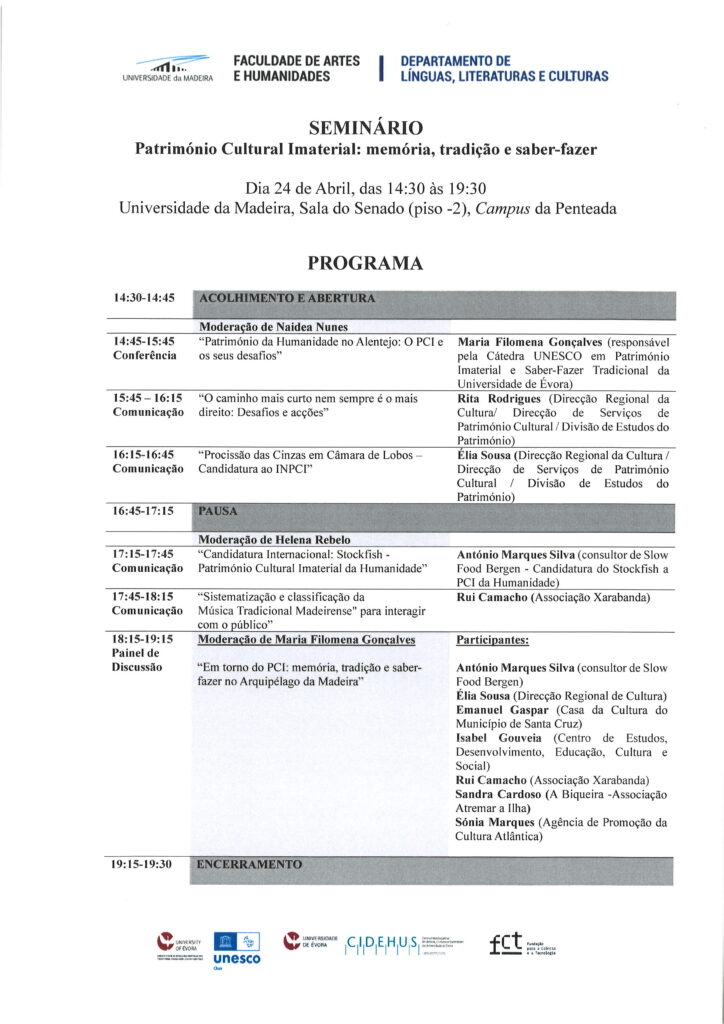
Seminário organizado em parceira com a Universidade da Madeira.


Dando continuidade aos ciclo de conferências online “Imaterialidades”, a Cátedra UNESCO promove um ciclo dedicado à apresentação dos projetos de doutoramento em curso.
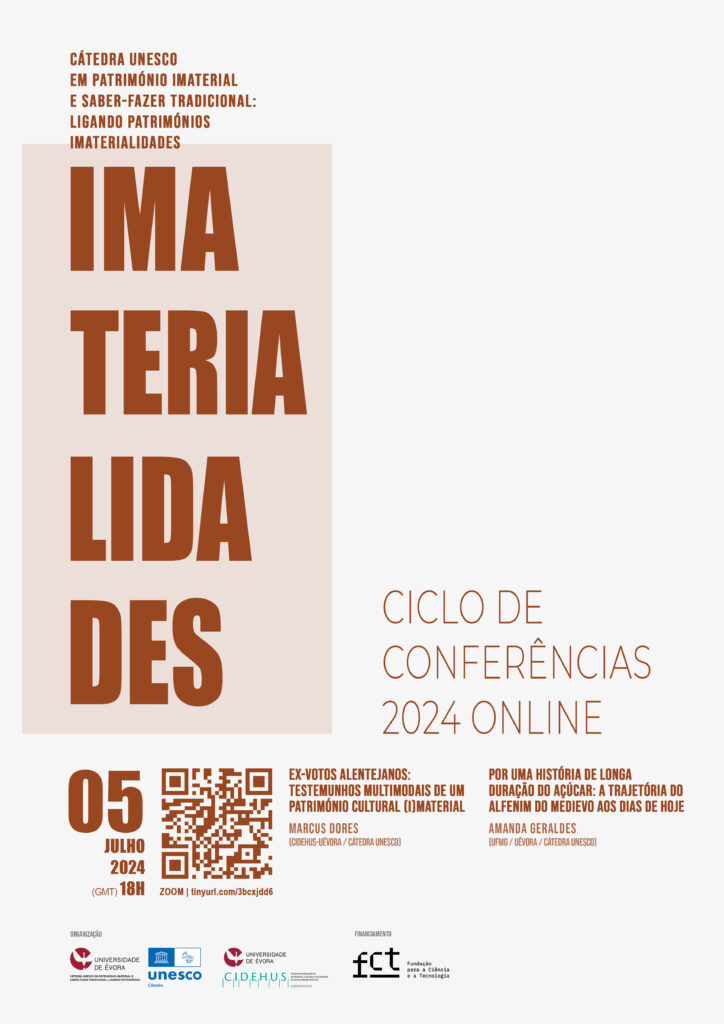
MARCUS DORES (CIDEHUS-UEVORA) Ex-votos alentejanos: testemunhos multimodais de um património culrural (i)material
AMANDA GERALDES (UFNG/UEVORA) Por uma história de longa duração do açúcar: a trajetória do alfenim do medievo aos dias de hoje
LINK ZOOM: https://tinyurl.com/3bcxjdd6 (ID da reunião: 945 1214 3688 – Senha: 221349)
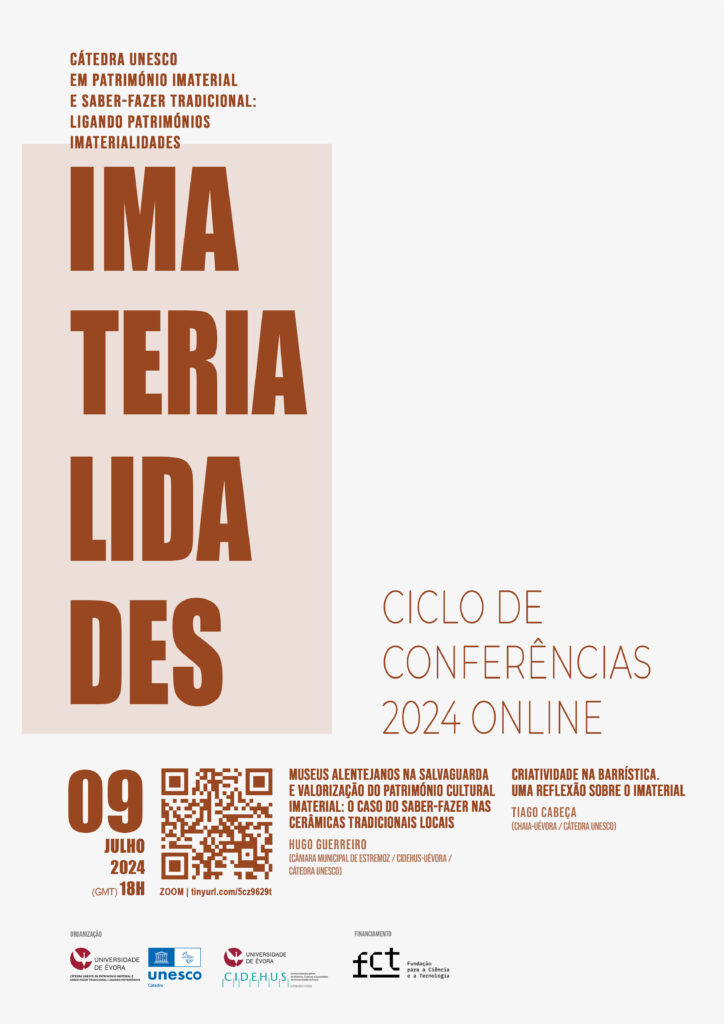
HUGO GUERREIRO (Câmara Municipal de Estremos/CIDEHUS-UEVORA) Museus alentejanos na salvaguarda e valorização do património cultural imaterial: o caso do saber-fazer nas cerâmicas tradicionais
TIAGO CABEÇA (CHAIA-UEVORA) Criatividade na barrística. Uma reflexão sobre o imaterial
LINK ZOOM: https://tinyurl.com/5cz9629t
O contributo das Cátedras UNESCO para a promoção e defesa dos direitos humanos e para uma cultura de paz
Beja, 26 de setembro de 2024
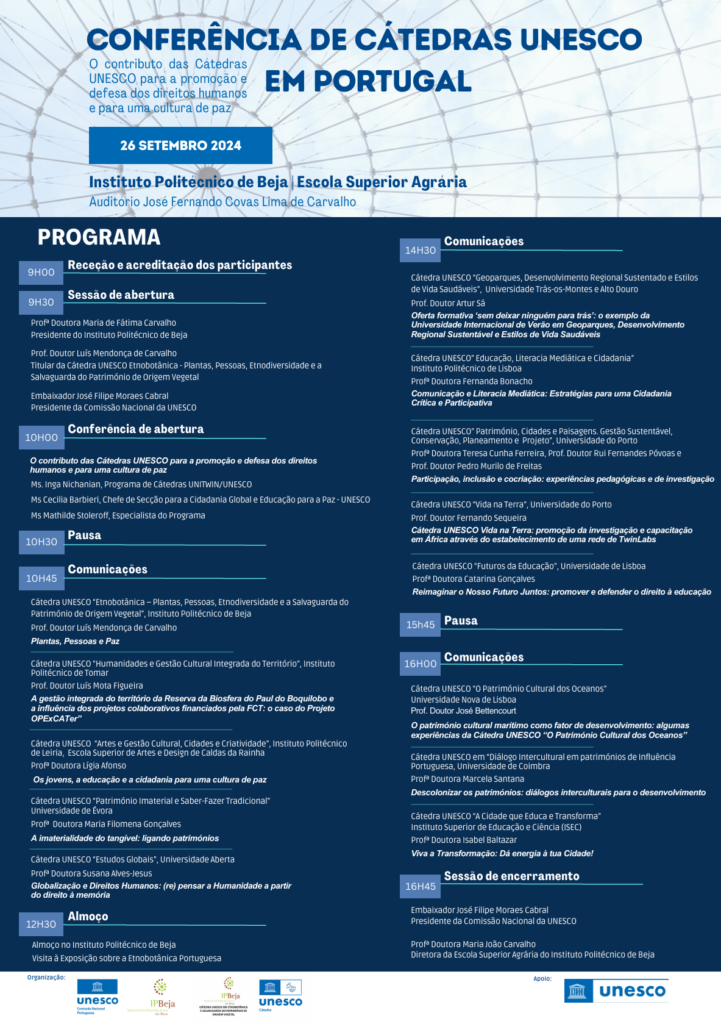
Filomena Gonçalves, títular da Cátedra UNESCO em Património Imaterial da Universidade de Évora, participará no evento com uma comunicação intitulada “A imaterialidade do tangível: ligando patrimónios”.